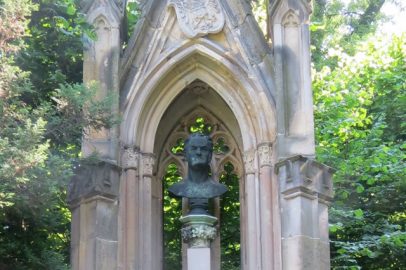The top 10 geographers in the world. The world-renowned geographers. Alfred Wegener ranks first.
1. Alfred Wegener
Alfred Wegener, born in Berlin on November 1, 1880, was a German meteorologist and geophysicist who graduated from Humboldt University in Berlin. He primarily studied atmospheric thermodynamics and ancient meteorology and gained fame for advocating the theory of continental drift. He authored the book “The Origin of Continents and Oceans” and is widely known as the “Father of Continental Drift Theory.” Unfortunately, during his third expedition to Greenland to investigate meteorology in 1930, Wegener tragically lost his life in the ice and snow.
2. Eratosthenes
Eratosthenes (275 BC-193 BC), born in Cyrene, a Greek colony in northern Africa (present-day Libya), is celebrated as the “Father of Geography” by Western geographers. In addition to his significant contributions in geodesy and geography, he holds the distinction of being the first to use the term “geography” in Western language, employing it as the title of his work, “Introduction to Geography.” Eratosthenes was also a learned philosopher, poet, and astronomer.
3. Carl Ritter
Carl Ritter (1779-1859), a German geographer, was one of the founders of modern geography. He was born in Quedlinburg and passed away in Berlin. Ritter served as a professor at the University of Frankfurt and the University of Berlin. He was Germany’s first chair professor of geography and the founder of the Berlin Geographical Society. Ritter was the first to expound upon the comprehensive and unified relationship between humans and the land, laying the foundation of human geography. He believed that geography was an empirical science and emphasized the central role of human beings in geographical research. Ritter coined the term “geoscience” and advocated for the integration of geography and history. He adhered to a teleological philosophical viewpoint, believing that God was the master builder of the Earth. Ritter authored works such as “European Geography” and “General Theory of Earth Science.”
4. Christopher Columbus
Christopher Columbus (Spanish: Cristóbal Colón; Italian: Cristoforo Colombo) was an explorer, colonist, and navigator. He was born in the medieval Republic of Genoa (now part of northwest Italy) around autumn 1450/1451. Columbus embarked on his voyages during a period of rising Western imperialism and intense economic competition among European kingdoms seeking to establish trade routes and colonies. Supported by the Spanish Crown, Columbus conceived adventurous plans to sail westward in search of a route to the East Indies.
5. Vasco da Gama
Vasco da Gama (approximately 1469-December 24, 1524, Portuguese: Vasco da Gama) was a Portuguese navigator and explorer, known for pioneering the sailing route from Europe around the Cape of Good Hope to India. Da Gama initially participated in the war between Portugal and Spain and later served in the Portuguese court. On July 8, 1497, he was commissioned by the King of Portugal to lead an expedition from Lisbon in search of a sea route to India. The voyage took the ship through the Canary Islands, around the Cape of Good Hope, and onward through places such as Mozambique.
6. Ferdinand Magellan
Ferdinand Magellan (full name Ferdinand Magellan, Portuguese: Fernão de Magalhães; Spanish: Fernando de Magallanes, spring 1480 – April 27, 1521) was an explorer, navigator, and colonist from Portugal. Undertaking an expedition for the Spanish government, Magellan’s fleet completed the first circumnavigation of the globe from 1519 to September 1522. Tragically, Magellan died in tribal conflicts in the Philippines during the voyage. The remaining crew members continued westward after his death, eventually returning to Europe and completing the historic journey.
7. Claudius Ptolemy
Claudius Ptolemy (approximately 90-168), also known as Ptolemy or Claudius Ptolemaeus, is believed to have been born in Hellenistic Egypt. He was a renowned astronomer, geographer, astrologer, and optician during the Roman Empire. Ptolemy viewed geography as a linear description of the known world and everything related to it. His works involved drawing graphics, providing geographical descriptions, and employing place names and measurement tables.
8. Halford Mackinder
Halford John Mackinder (February 15, 1861 – March 6, 1947) was a British geographer and geopolitical scientist. He is known for his geopolitical concept of the Earth, which divided the world into two camps: the dominant heartland of Eurasia and the subordinate sea zone, encompassing other continents. This concept corresponds to Mahan’s theory of sea power.
9. Vilhelm Bjerknes
Vilhelm Bjerknes (also translated as Wilhelm Bjerknes) was a Norwegian meteorologist and physicist. He is considered one of the founders of modern synoptic science and atmospheric dynamics. Bjerknes co-authored the three-volume work “Dynamic Meteorology and Hydrology” with other experts. The first volume, “Statics,” was published in 1910, followed by “Kinematics” in 1911, and finally “Physical Fluid Mechanics and Its Application to Dynamic Meteorology” in 1933. Bjerknes also authored papers such as “On the Formation of Circular Motion and Vortex in Frictionless Fluid” (1898) and “On Circular Vortex Dynamics and Its Application to the Atmosphere and Atmospheric Vortex and Fluctuation” (1937).
10. Li Daoyuan
Li Daoyuan (472-527 A.D.) was born in Zhuozhou, Fanyang (now Zhuozhou, Hebei). He was the son of General Li Fan of Pingdong and served as an official and geographer during the Southern and Northern Dynasties in the Northern Wei Dynasty. Li Daoyuan authored a monumental work called “Shui Jing Zhu,” consisting of forty volumes. The writing style of this work is profound and the descriptions are vivid. It not only encompasses a wealth of geographical content but also showcases beautiful prose that captures the essence of landscapes. Li Daoyuan is rightfully regarded as a pioneer of Chinese travel literature, as his work greatly influenced the development of travel prose in later generations. Additionally, he wrote thirteen articles in “Benzhi” and “Qipin,” although unfortunately, all of them have been lost over time.

